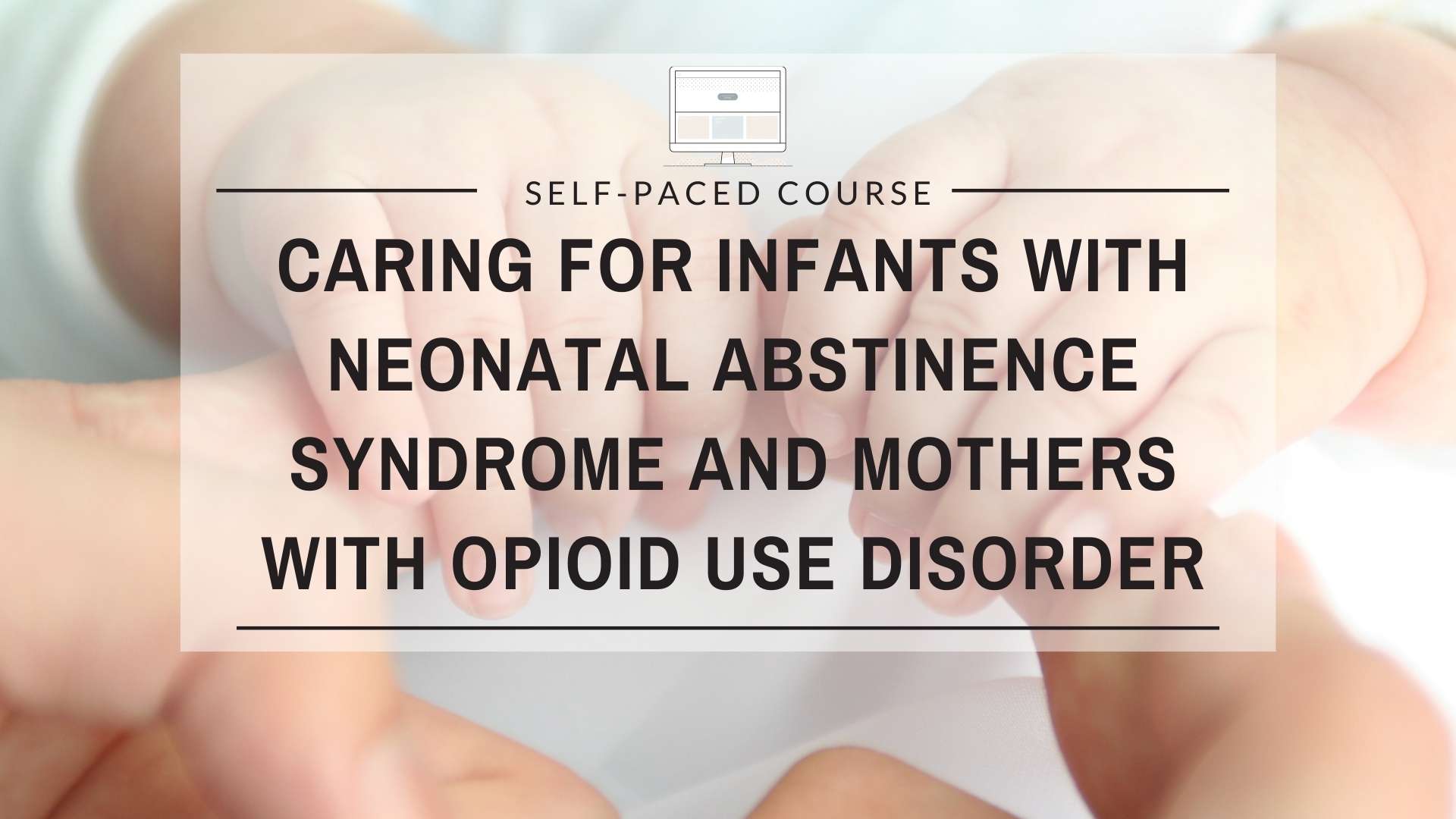This course aims to expand foundational knowledge for using non-pharmacological approaches when caring for infants with Neonatal Abstinence Syndrome (NAS) and working with mothers with Opioid Use Disorder (OUD) in hospital settings.
It covers three topics relevant to working with infants with NAS and mothers with OUD. Learners will gain an understanding of 1) NAS and its long-term effects, 2) Trauma-informed approaches to care, and 3) Medication-assisted recovery for mothers with OUD.
Learning Objectives:
- Communicate the current recommendations for long-term monitoring of infants with NAS.
- Describe the prevention interventions that can help mitigate any potential long-term effects of NAS.
- Communicate the current science on potential long-term health and educational outcomes for infants with NAS.
- Practice using terms and preferred language to help reduce stigma and discrimination around substance use and recovery.
- Describe SAMHSA’s three E's of Trauma: Events, Experience, and Effect of trauma.
- Explain how health care settings can apply Trauma-Informed Care (TIC) principles.
- Discuss common misconceptions about medication-assisted recovery and strategies to address them.
- Communicate national guidance for managing pregnant and post-partum women with OUD.
Target Audience: Clinical and non-clinic health care professionals working with infants with NAS and mothers with OUD.
Core Competencies for Public Health Professionals: Tier 1 – Front Line Staff/Entry Level and Tier 2 – Program Management/Supervisory Level.
Duration: 60 minutes
Continuing Education Information: 1.0 Category 1 CHES Credits, 1.0 Continuing Competency Credits
CHES Provider number: 99036Format: Web-based Training, Self-Study
Created/Updated: July 2021
Author(s): Yvonne Bueno, MPH, OTR/L, Mohammed Bader, MD, Lisa Grisham, NNP-BC, Jocelyn Maurer, RNC-NIC
Disclosures: The planners, reviewers, and authors have no declared conflicts of interest
